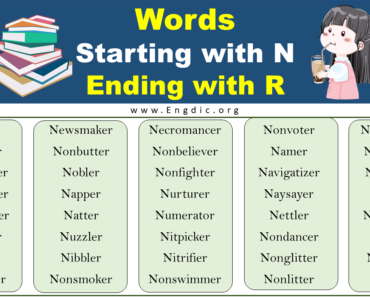Insurance is a vital aspect of our modern lives, providing financial protection and peace of mind in the face of unexpected events. In this blog post, we’ll explore 50 essential words associated with insurance, shedding light on the industry’s terminology and concepts.
From premiums to deductibles, underwriting to claims, join us as we unravel the intricacies of this crucial financial safeguard.
Whether you’re a seasoned insurance professional or a newcomer seeking clarity, this concise guide will enhance your understanding of the insurance world. Let’s dive into this jargon-packed universe and decode the language of insurance.
Words Associated With Insurance
Here is the list of the top 50 words associated with insurance:
- Policy
- Premium
- Coverage
- Claim
- Deductible
- Underwriting
- Insurer
- Insured
- Risk
- Liability
- Agent
- Broker
- Reinsurance
- Actuary
- Exclusion
- Endorsement
- Beneficiary
- Indemnity
- Loss
- Accident
- Peril
- Property
- Health
- Life
- Auto
- Homeowners
- Umbrella
- Settlement
- Underinsured
- Uninsured
- Policyholder
- Payout
- Claimant
- Adjuster
- Co-Payment
- Coverage Limit
- Risk Assessment
- Premium Payment
- Rate
- Subrogation
- Insurable Interest
- Excess
- Fidelity Bond
- Flood Insurance
- Personal Injury
- Term Life
- Whole Life
- Group Insurance
- Premium Increase
- Named Peril

Let us explore each term in detail with a short precise and easy-to-understand definition.
1. Policy
An insurance policy is a legal contract between the insured and the insurer, outlining the terms and conditions of coverage, including the premium, coverage limits, and any exclusions.
2. Premium
The premium is the amount of money an insured person or entity pays to the insurer in exchange for insurance coverage, typically paid on a regular basis, such as monthly or annually.
3. Coverage
Coverage refers to the specific risks or events that an insurance policy protects against. It defines what the insurance will pay for in the event of a claim.
4. Claim
A claim is a formal request made by an insured person or entity to their insurance company for financial compensation or benefits in accordance with the terms of the insurance policy.
5. Deductible
A deductible is the amount of money that the policyholder must pay out of pocket before the insurance company begins to cover the costs of a claim.
6. Underwriting
Underwriting is the process by which insurance companies evaluate the risks associated with insuring a person, property, or entity and determine the terms and pricing of the policy.
7. Insurer
An insurer is a company or entity that provides insurance coverage to policyholders in exchange for premiums. It assumes the financial risk associated with the insured events.
8. Insured
The insured is the individual, organization, or entity that holds an insurance policy and is entitled to receive benefits or compensation in case of a covered loss.
9. Risk
Risk in insurance refers to the likelihood of an event or loss occurring that would result in a claim. Insurance is designed to mitigate or manage these risks.
10. Liability
Liability insurance covers the policyholder’s legal responsibility for injuries or damages they may cause to others. It can apply to various situations, such as auto accidents or product liability.
11. Agent
An insurance agent is a licensed representative who helps individuals and businesses purchase insurance policies and provides information on available coverage options.
12. Broker
An insurance broker is a licensed intermediary who works with multiple insurance companies to help clients find the best insurance policies to meet their needs.
13. Reinsurance
Reinsurance is a process by which insurance companies transfer a portion of their risk to other insurers, typically for large or complex risks, to protect against catastrophic losses.
14. Actuary
Actuaries are professionals who use mathematics, statistics, and financial theory to assess and manage risk for insurance companies, helping determine premium rates and reserves.
15. Exclusion
An exclusion is a provision in an insurance policy that specifies what is not covered by the policy, detailing the circumstances or events for which the insurer will not pay claims.
16. Endorsement
An endorsement, also known as a rider or addendum, is a modification or addition to an existing insurance policy to customize coverage based on the policyholder’s needs.
17. Beneficiary
A beneficiary is a person or entity named in an insurance policy to receive the benefits or proceeds in the event of the policyholder’s death or a covered loss.
18. Indemnity
Indemnity in insurance refers to the principle of compensation for a covered loss, ensuring that the policyholder is financially restored to the same position they were in before the loss occurred.
19. Loss
A loss is a financial detriment suffered by the insured due to a covered event, which triggers the insurance company’s obligation to provide compensation or benefits.
20. Accident
An accident is an unexpected and unintentional event that results in injury, damage, or loss, often covered by various types of insurance, such as auto or personal accident insurance.
21. Peril
A peril is a specific cause of loss or damage that is covered by an insurance policy, such as fire, theft, natural disasters, or accidents.
22. Property
Property insurance covers damage or loss to physical assets, including real estate, homes, buildings, and personal belongings, against various perils.
23. Health
Health insurance provides coverage for medical expenses and healthcare services, including doctor visits, hospital stays, medications, and preventive care.
24. Life
Life insurance is a contract that provides financial protection to beneficiaries upon the policyholder’s death, offering peace of mind and financial security.
25. Auto
Auto insurance, also known as car insurance, protects drivers and vehicle owners against financial losses resulting from accidents, theft, or other covered events.
26. Homeowners
Homeowners insurance covers damage or loss to a homeowner’s property and belongings, as well as liability protection for accidents that occur on the property.
27. Umbrella
An umbrella insurance policy provides additional liability coverage beyond the limits of primary insurance policies, offering extra protection for unexpected and costly claims.
28. Settlement
A settlement is the resolution of an insurance claim, where the insurer agrees to provide compensation to the policyholder or claimant for a covered loss, often through negotiation.
29. Underinsured
Underinsured refers to a situation where the at-fault party in an accident does not have sufficient insurance coverage to fully compensate the injured party’s losses.
30. Uninsured
Uninsured refers to a situation where a party involved in an accident or incident does not have any insurance coverage, potentially leaving the injured party with limited options for compensation.
31. Policyholder
The policyholder is the individual or entity that owns an insurance policy and is responsible for paying premiums to maintain coverage.
32. Payout
A payout is the disbursement of funds by the insurance company to the policyholder or beneficiary in accordance with the terms of the policy, often in response to a claim.
33. Claimant
A claimant is an individual or entity making a claim for insurance benefits or compensation following a covered loss or incident.
34. Adjuster
An adjuster is an insurance professional responsible for evaluating and determining the extent of damages and the amount of compensation owed in an insurance claim.
35. Co-payment
A co-payment is a fixed amount that a policyholder must contribute out of pocket for certain covered healthcare services or prescription medications, with the insurer covering the remainder.
36. Coverage limit
A coverage limit is the maximum amount an insurance policy will pay for a covered loss or event, often specified in the policy terms.
37. Risk assessment
Risk assessment is the process of evaluating and analyzing potential risks and their impact on an insured person, property, or business to determine appropriate insurance coverage.
38. Premium payment
Premium payments are the periodic installments or lump-sum amounts paid by the policyholder to the insurer to maintain coverage.
39. Rate
The rate is the price or cost of insurance coverage, often calculated based on factors such as age, location, type of coverage, and risk assessment.
40. Subrogation
Subrogation is the legal process by which an insurance company can seek reimbursement from a third party responsible for causing a loss that the insurer has already compensated the policyholder for.
41. Insurable interest
Insurable interest is a requirement in insurance that the policyholder must have a legitimate financial interest in the subject of the insurance policy, ensuring that insurance is not used for speculative purposes.
42. Excess
Excess, also known as a surplus or deductible, is the portion of a covered loss that the policyholder is responsible for paying before the insurer begins to provide compensation.
43. Fidelity bond
A fidelity bond, often used in business settings, provides coverage against losses resulting from employee dishonesty, theft, or fraud.
44. Flood insurance
Flood insurance is a specialized policy that covers damage caused by flooding, typically not covered by standard homeowners or property insurance.
45. Personal injury
Personal injury insurance covers bodily injury or harm to an individual, often resulting from accidents or negligence, and may include coverage for medical expenses and legal costs.
46. Term life
Term life insurance provides coverage for a specified period, offering a death benefit to beneficiaries if the insured person passes away during the policy term.
47. Whole life
Whole life insurance is a permanent life insurance policy that provides coverage for the lifetime of the insured and includes a cash value component that grows over time.
48. Group insurance
Group insurance policies are offered by employers or organizations to provide coverage to a group of individuals, often at a lower cost than individual policies.
49. Premium increase
A premium increase is the adjustment of the insurance premium, resulting in a higher cost of coverage, often due to changes in risk factors or claims history.
50. Named peril
Named peril insurance policies specify the specific perils or events that are covered, as opposed to all-risk policies, which cover all perils except those explicitly excluded in the policy documents.
Infographic







